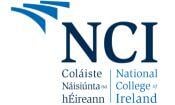
Maximilian Schöll is currently completing his master's degree in Computer Science in Dublin at UCD. Max previously studied in Germany, he holds a bachelor's degree in Computer Science with a focus on IT Security. Currently, Max works as a Data Scientist for a Swiss-based clinical research department.
Max shares his NASA Space Apps Challenge experience below.
Can you share your NASA Space Apps Challenge experience?
I took part in the NASA Space Apps Challenge in 2024. Alongside my teammates, I developed an interactive 3D orrery that allows users to navigate through and explore our solar system and near-earth objects in an engaging, hands-on way. (I'll admit, I had to look up “orrery” the first time).
While its primary function is educational, we built the framework with a critical future application in mind as it could be adapted to identify and plot the pathways of space debris. This has huge relevance for protecting satellites and future space missions.
Why did you decide to take part in the NASA Space Apps Challenge?
Honestly, I was fortunate that a university friend invited me to participate. Having just moved to Dublin with few connections, I was excited by the challenge of solving a complex problem in just one weekend. There's something thrilling about finding solutions under pressure.
It forces you to think outside the box and sometimes leads to unconventional approaches that, while perhaps not the most elegant, still work effectively. It's a valuable learning experience that pushes you beyond standard methodologies.
What motivates you?
To keep myself supplied with Guinness and textbooks...Solving complex problems is extremely rewarding. That satisfaction is genuinely addictive and it's what keeps me motivated to hunt for the next puzzle and constantly learn.
My role involves wrestling with diverse medical data, everything from surgical vital signs to lab results, to help ensure medical quality and improve patient care. For the past two years, my work has helped turn mountains of numbers into meaningful health outcomes.
What was the best part about taking part in the NASA Space Apps Challenge?
Watching my teammates become genuine friends was the best part. Beyond that, it was seeing how our different skills came together. For instance, when our virtual planets started flying off into the digital void instead of orbiting gracefully, we knew we were in over our heads in terms of physics.
Hakim Abid from the Space Apps team gave us some crucial guidance we needed to put our solar system back in order. It was a powerful lesson in never hesitating to ask for help.
What do you aspire to do next?
I've always been drawn to computers and logic, so a career in this field felt inevitable.
As for my overarching goal... probably making my parents proud. They say they already are, but I'm pretty sure that's a contractual obligation of being a parent.
What advice would you give this year's participants?
Have fun, and don’t take it too seriously. Not that you shouldn't give it your all, but don't panic when your first idea spectacularly fails. Or your second. It forces you to innovate under pressure. Embrace the chaos and enjoy the ride.
Interested in taking part? Visit the NASA Space Apps Challenge website to register. Please note that data related to this challenge is not collected, stored, or managed by National College of Ireland.










